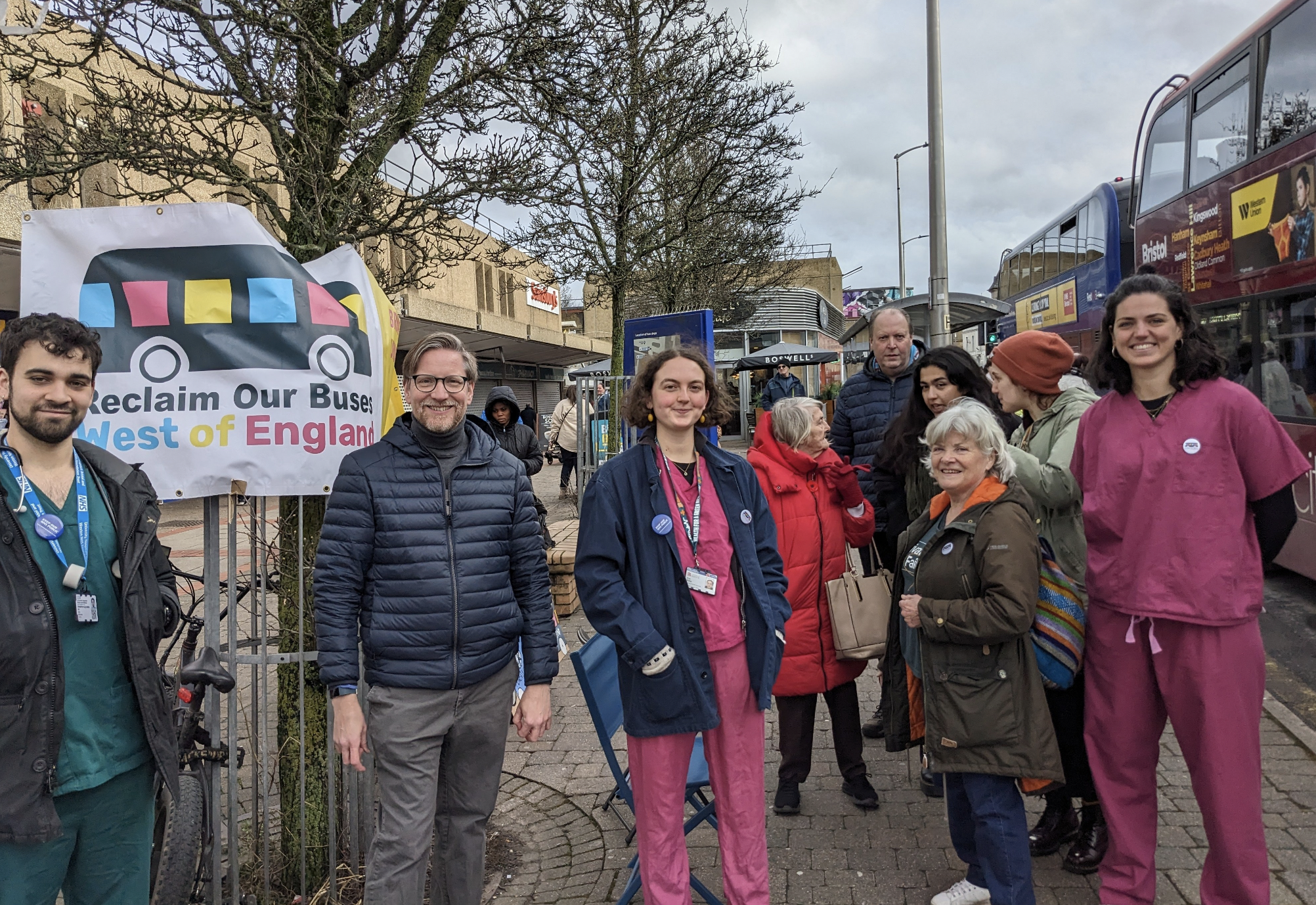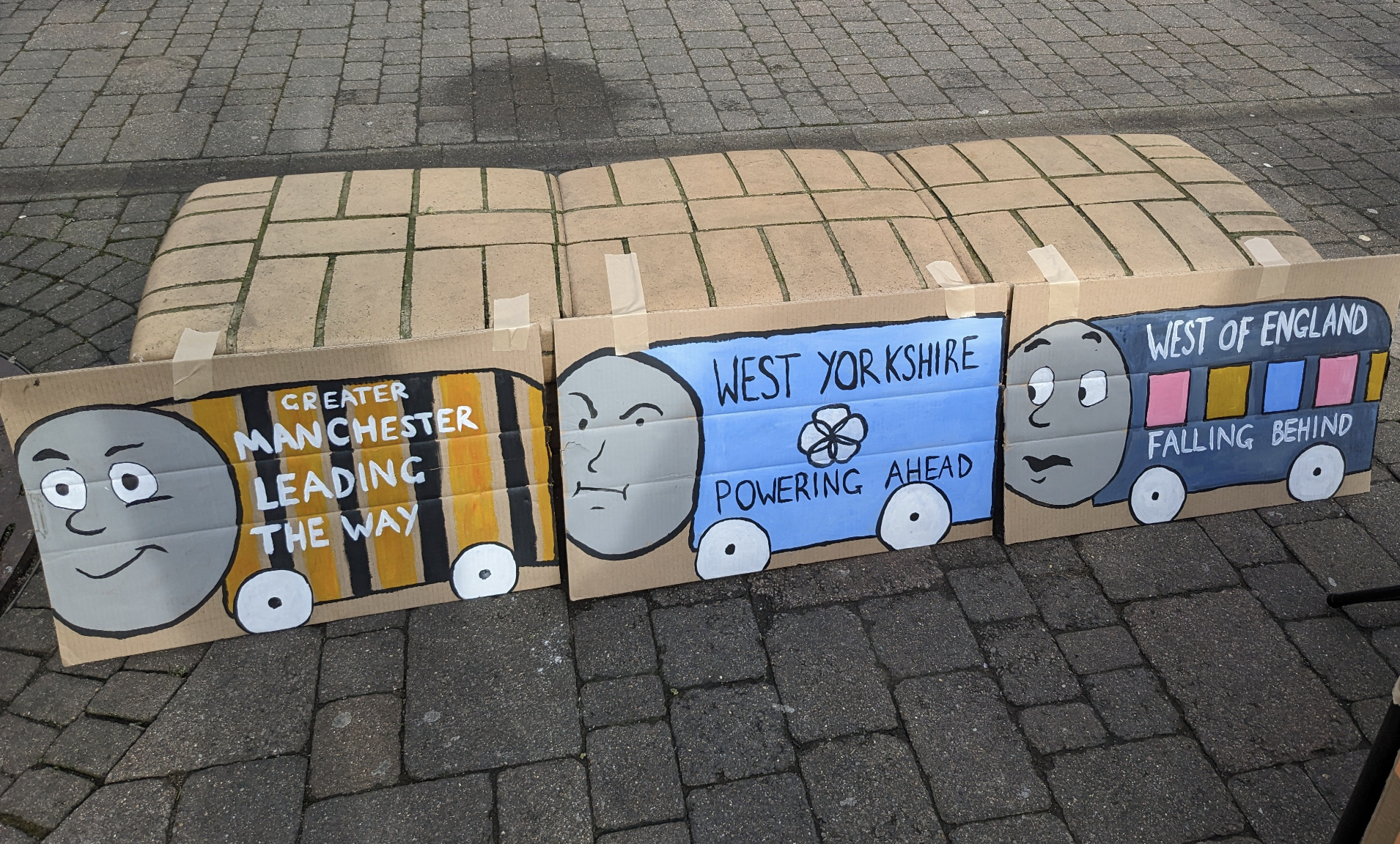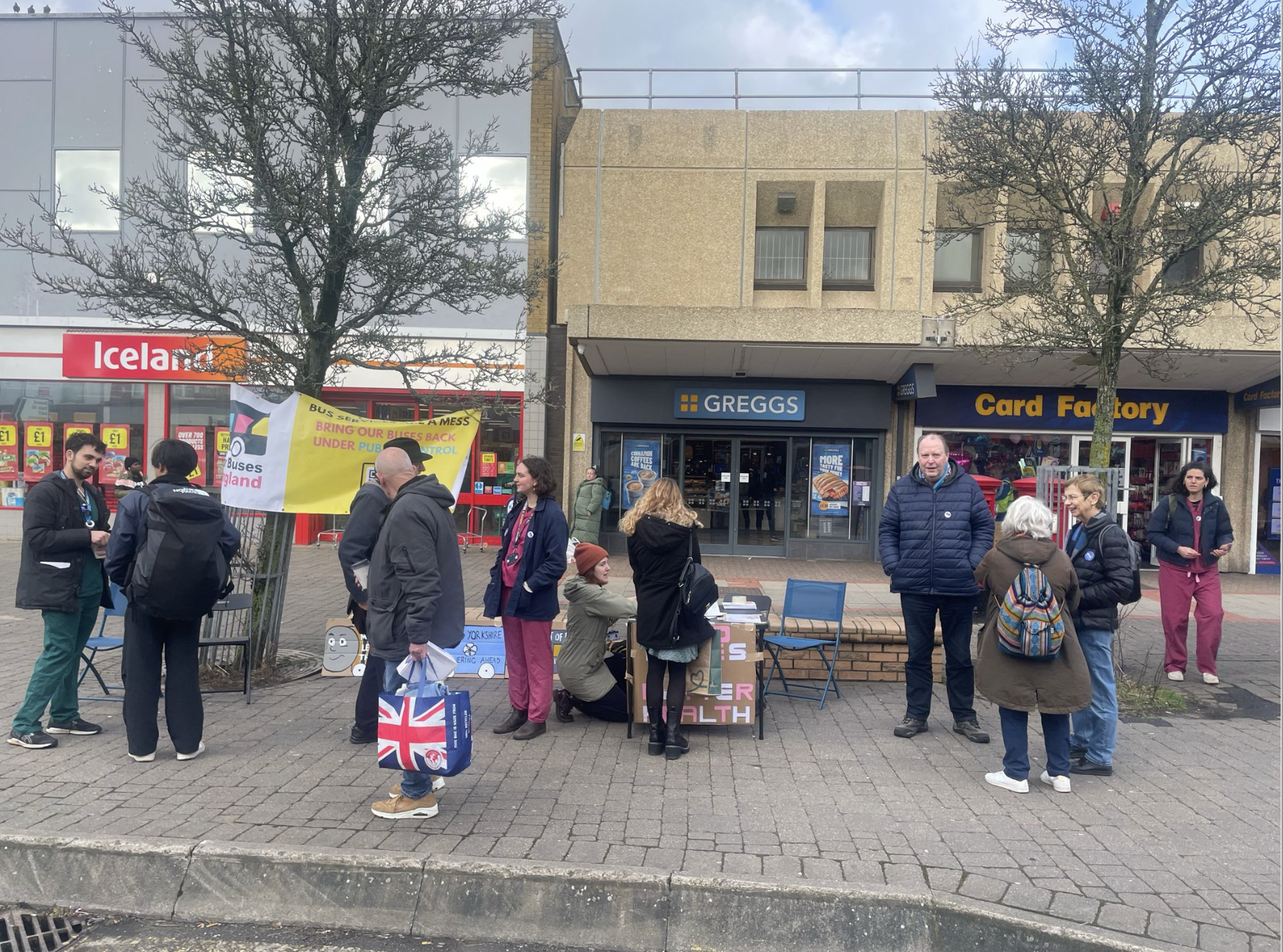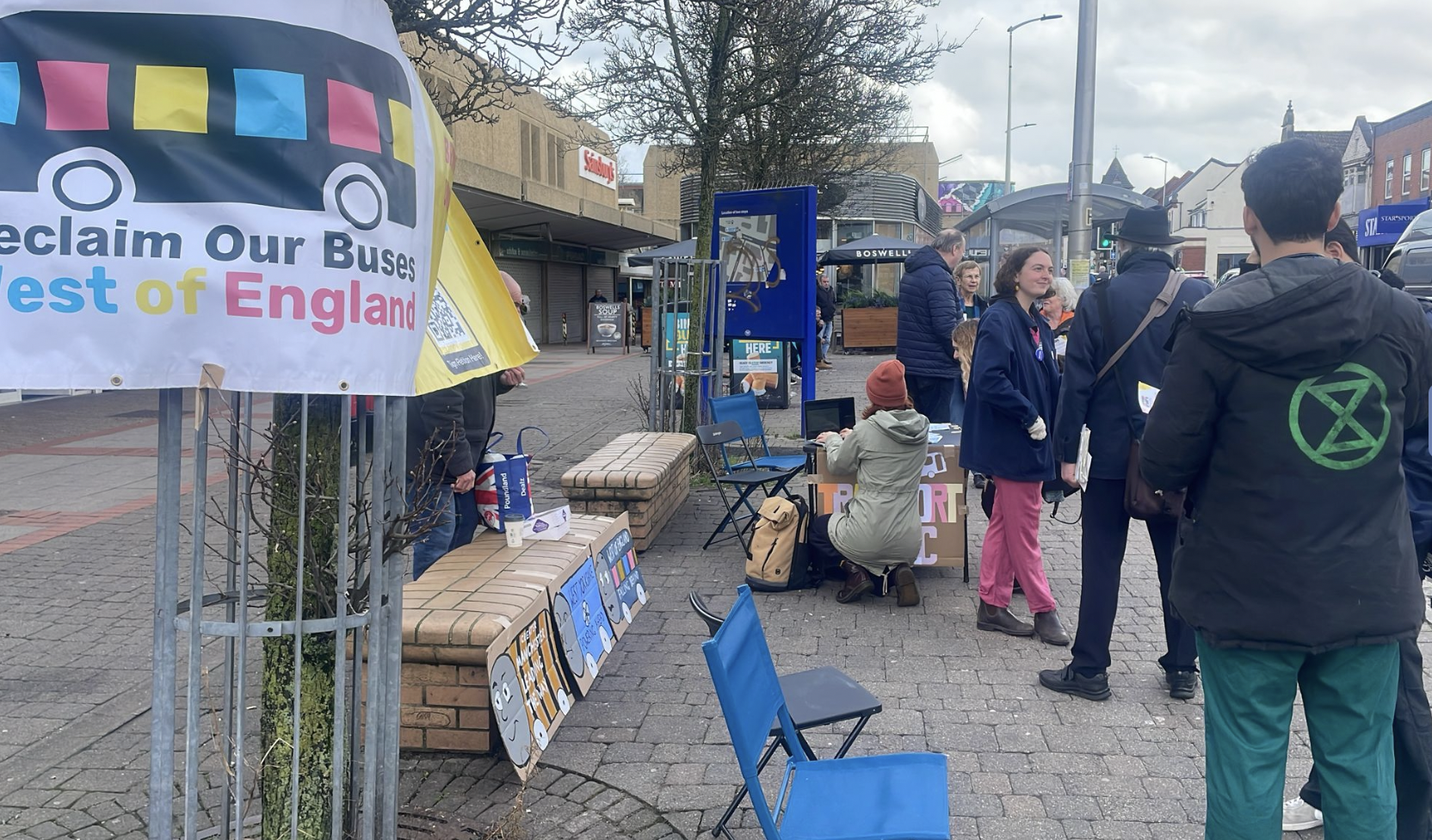Medact and Reclaim our Buses Press Release: By-election candidates urged to take a stance on franchising
Bus campaigners and health workers urge by-election candidates to take a stance on public control of buses, holding ‘transport clinic’ at Kingswood shopping centre
Campaigners welcome support from Labour and Lib Dem candidates for public control
Buses are in crisis resulting in social isolation, limited access to critical services and healthcare professionals struggling to get to work
Public control of buses as it allows for regulation of routes and prices, for a more efficient and reliable bus service, essential for health and climate crisis
Like the NHS, transport is an essential public service that should be in the hands of the public.
Today, Saturday 10th February, Bristol health workers complete with scrubs and stethoscopes from the national charity Medact joined local campaign group “Kingswood Climate Action”, members of the Reclaim Our Buses campaign and the West of England Mobility Hub to hold a “Transport Clinic” outside Kingswood shopping centre. The stall was designed to look like a medical clinic to highlight the links between public transport and health; the supposed cure being public control of buses. Passersby were invited to discuss their experiences of the local bus system and explore the option of bus franchising. The campaigners also shared the responses from the Kingswood by-election candidates ahead of the vote next week.
The campaigners claim that the bus system in the West of England is in crisis, with dozens of routes being cut in recent years.
According to the campaigners, bus franchising represents an exciting opportunity to reverse some of the ill effects of the deregulation of buses in the 1980s, including extortionate fares and cuts to thousands of routes. Franchising means that bus operators are contracted by the local transport authority, and are therefore publicly regulated.
They argue that efficient, reliable buses are essential for accessing employment, with 2.5 million people in the UK using buses to get to work every day, and highlight that good public transport is also linked to better quality of life for some of the more vulnerable people in society, including children and youth with disabilities.
While preparing for the by-election on the 15th February, the Kingswood candidates were contacted and urged to state their position on public control of buses. The campaigners welcomed the support of both Labour candidate Damien Egan, and Liberal democrat candidate Councillor Andrew Brown.
Egan stated that “Labour will reform our broken bus system and hand power and control over services to local communities”, while Brown wrote “I know how challenging it is for people who have no other options when bus services are cut, but also when they are unreliable – especially for those who depend on them for work,” referencing recent route cuts in his ward.
Candidates Lorraine Francis (Green Party) and Samuel Bromiley (Conservative Party) were also approached for comment but no response was received.
Medact Bristol campaigners, including doctors, medical students and a psychologist, believe that public transport is a health issue, as better bus provision would likely reduce people’s reliance on cars, cutting carbon emissions and improving air pollution which has a detrimental impact on chronic diseases like asthma.
Dr Nazanin Rassa added “It is vital for the health of everyone in Bristol that we urgently improve our buses and public transport… Improved buses would also mean improved mobility for the vulnerable folks in our communities making the city accessible to all and helping to address social isolation. This campaign is essential for a healthier, more sustainable Bristol.”
“Reclaim Our Buses” is a Bristol-based campaign group who argue that public regulation of buses would allow for streamlining of services (rather than multiple operators competing for customers) and better connectivity due to less profitable (but no less essential) routes being subsidised by other routes. It would also facilitate quality of life improvements such as an integrated, single ticketing system.
The campaigners cite the successes of bus reform in other European cities as models for similar public control in the West of England. The Greater Manchester Combined Authority embraced bus franchising in 2023 after research showed that the net economic and social benefits of franchising (£234m) greatly outweighed the partnership offered by the bus companies (£80m)(.
“We need to have an informed public conversation on bus franchising… WECA [the West of England Combined Authority] should be opening up a conversation about how we get enough funding in to have decent bus services, and whether public control is right for the region, based on full information from the formal investigation.” Emilia Melville, Reclaim our Buses
Peggy Woodward, a retired midwife, expressed concerns about local bus routes “I live in Kingswood and have always used the buses frequently… Many of the people I've talked to while waiting for buses say that they can't afford a car and they want reliable public transport… The Number 17 from Kingswood to Southmead is repeatedly threatened and this is a lifeline for patients and staff at Southmead Hospital.”




